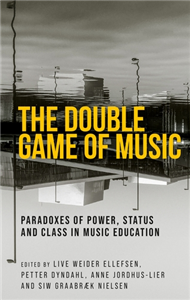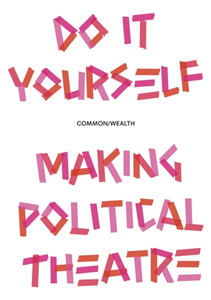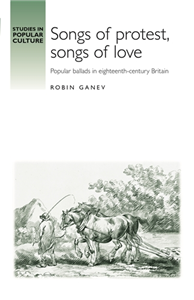Your Search Results
-
Griots Lounge Publishing Canada
Griots Lounge and its imprints offers traditional publishing and sundry services to creative talents across Africa, as well as children friendly literature.
View Rights Portal
-
Promoted ContentSocialism & left-of-centre democratic ideologiesOctober 2014
Against the grain
The British far left from 1956
by Edited by Evan Smith and Matthew Worley
Against the grain is the first general history of the British far left to be published in the twenty-first century. Its contents cover a range of organisations beyond the Labour Party, bringing together leading experts on British left-wing politics to examine issues of class, race and gender from 1956 to the present day. The essays collected here are designed to highlight the impact made by the far left on British politics and society. Though the predicted revolution did not come, organisations such as the International Socialists, the International Marxist Group and Militant became household names in the 1970s and 1980s. Taken as a whole, the collection demonstrates the extent to which the far left has weaved its influence into the political fabric of Britain.
-
Promoted ContentThe ArtsDecember 2025
The double game of music
Paradoxes of power, status and class in music education
by Live Weider Ellefsen, Petter Dyndahl, Anne Jordhus-Lier, Siw Graabræk Nielsen
The double game of music imagines music education as a series of games - each with its own rules, play currency and players - to challenge readers to rethink the significance of music and musical upbringing in shaping social structures. Drawing on their own empirical research and a wide range of international contributions, the authors unravel the intertwining of social positioning and power hierarchies with players beliefs in the pure values and virtues of their games, whether these relate to parenting, children's play, schooling, academic pursuits, musical leisure activities or the television and music industries. In a world where music is often celebrated as an important tool for inclusion and democratisation, this groundbreaking book offers a timely critique, revealing complexities and contradictions that tend to be overlooked by teachers, researchers, politicians and others interested in the powers of music education.
-
 Trusted Partner
March 2021
Trusted Partner
March 2021Feeling fresh
Wie Kälte unser Immunsystem stärkt und wir uns rundum wohlfühlen
by Andrea Bianchi
-
 Trusted Partner
The ArtsSeptember 2025
Trusted Partner
The ArtsSeptember 2025Do It Yourself
Making political theatre
by Common Wealth
A unique guide to creating political theatre, produced by one of the UK's most exciting companies. Do It Yourself is a vital resource for anyone interested in exploring theatre culture grounded in and produced by working-class, multi-racial communities. Designed for artists, activists and community organisers, the book offers a step-by-step guide to creating political theatre that is relevant, impactful and rooted in the lives of everyday people. Common Wealth have spent fifteen years working at the cutting edge of political theatre. In Do It Yourself, they share their experimental and activist approach to performance-making, based on DIY principles and the belief that ground-breaking theatre can be made with anyone, anywhere, in ways that truly resonate with the communities it serves. Do It Yourself introduces Common Wealth's artistic and political ethos, provides unique insights into their most significant performances and offers practical exercises for creating your own work. But this is not just a manual. It is a celebration of culture as a collective endeavour, one that can challenge the status quo and inspire change.
-
 Trusted Partner
Socialism & left-of-centre democratic ideologiesDecember 2014
Trusted Partner
Socialism & left-of-centre democratic ideologiesDecember 2014Against the grain
by Edited by Evan Smith and Matthew Worley
-
 Trusted Partner
Humanities & Social SciencesJanuary 2017
Trusted Partner
Humanities & Social SciencesJanuary 2017Against the grain
The British far left from 1956
by Evan Smith, Matthew Worley
This is the first general history of the British far left to be published in the twenty-first century. Its contents cover a range of organisations beyond the Labour Party, bringing together leading experts on British left-wing politics to examine issues of class, race and gender from 1956 to the present day. The essays collected here are designed to highlight the impact made by the far left on British politics and society. Though the predicted revolution did not come, organisations such as the International Socialists, the International Marxist Group and Militant became household names in the 1970s and 1980s. Taken as a whole, the collection demonstrates the extent to which the far left has weaved its influence into the political fabric of Britain.
-
 Trusted Partner
Literature & Literary StudiesJune 2025
Trusted Partner
Literature & Literary StudiesJune 2025Critical games
On play and seriousness in academia, literature and life
by Tim Beasley-Murray
Critical Games is about the games we play (whether we know it or not), the ways we play them (for fun, but also to win, and to gain approval from others), and what happens when they get out of hand. The book interrogates the theory of play and gaming, with a particular focus on the games played by literary authors and literary critics. Drawing on (often self-critical) autobiography, as well as readings in texts across a range of languages, Tim Beasley-Murray plays with academic conventions to highlight what is at stake in them, turning to the Game of Literature, from Kafka to Carrère, to seek models and warnings of the outcomes of taking games too seriously, or not taking them seriously enough.
-
 Trusted Partner
Trusted Partner
-
 Trusted Partner
Trusted Partner
-
 Trusted Partner
November 2016
Trusted Partner
November 2016Coming to Terms with Life
by Matthias Wengenroth
Do you struggle with thoughts and feelings that make life difficult? Have you tried all sorts of ways of dealing with this without getting anywhere? Do you feel that life is passing you by? Acceptance and commitment therapy (ACT), which this book describes in a clear and entertaining way, provides new and very enlightening insights into the causes of human suffering. At the same time, ACT shows how we can improve the way we handle the difficult aspects of being human, while also developing our abilities and strengths. This title shows how using the described simple but effective methods can lead you to a happier, better life. Target Group: people who want to utilize their potential more fully, people interested in acceptance and commitment therapy, people practicing or interested in psychotherapy (psychologists, doctors, coaches, social workers)
-
 Trusted Partner
Literature & Literary StudiesJune 2021
Trusted Partner
Literature & Literary StudiesJune 2021Passing into the present
Contemporary American fiction of racial and gender passing
by Sinead Moynihan
This book is the first full-length study of contemporary American fiction of passing. Its takes as its point of departure the return of racial and gender passing in the 1990s in order to make claims about wider trends in contemporary American fiction. The book accounts for the return of tropes of passing in fiction by Phillip Roth, Percival Everett, Louise Erdrich, Danzy Senna, Jeffrey Eugenides and Paul Beatty, by arguing meta-critical and meta-fictional tool. These writers are attracted to the trope of passing because passing narratives have always foregrounded the notion of textuality in relation to the (il)legibility of "black" subjects passing as white. The central argument of this book, then, is that contemporary narratives of passing are concerned with articulating and unpacking an analogy between passing and authorship. The title promises to inaugurate dialogue on the relationships between passing, postmodernism and authorship in contemporary American fiction.
-
 Trusted Partner
Humanities & Social SciencesJuly 2021
Trusted Partner
Humanities & Social SciencesJuly 2021Critical theory and feeling
The affective politics of the early Frankfurt School
by Simon Mussell
This book offers a unique and timely reading of the early Frankfurt School in response to the recent 'affective turn' within the arts and humanities. Resisting the overly rationalist tendencies of political philosophy, it argues that critical theory actively cultivates a powerful connection between thinking and feeling, and rediscovers a range of often neglected concepts that were of vital importance to the first generation of critical theorists, including melancholia, hope, (un)happiness, objects and mimesis. In doing so, it brings the dynamic work of Walter Benjamin, Theodor Adorno, Ernst Bloch and Siegfried Kracauer into conversation with more recent debates around politics and affect. An important intervention in the fields of affect studies and social and political thought, Critical theory and feeling shows that sensuous experience is at the heart of the Frankfurt School's affective politics.
-
 Trusted Partner
2024
Trusted Partner
2024The second half of your life - a manual
Tips and strategies for successful ageing
by Dr. Petra Kiedaisch
In the middle of our lives, the cards are reshuffled: marriages are divorced, careers are questioned, friendships are ended, questions of meaning are asked, bodies change - and not just hormonally. At the same time, children leave home and parents become carers. From the age of 45, the majority of our population is at the centre of a second upheaval that affects all facets of our lives and leaves us at a loss in many ways. Not only in our daily lives, but also when it comes to planning for our own old age. This guide is designed to help us find our way. It presents the most important information from all areas relevant to a good life after 45. Leading experts from the fields of medicine, nutrition, philosophy, theology, psychology, care, law and finance give recommendations on what to look out for and what tools are needed to get through these challenging years unscathed. Useful checklists round off the articles. The book shows us the unique opportunity to see these challenges not as a crisis but as a source of strength. Not only can we come through this period of our lives healthy and happy, but we can also shape it so that the next age threshold is no longer frightening. During the second phase of adolescence, we lay the foundations for whether and how we will grow older. Be it in terms of health or living together with family and friends. With contributions from: Prof. Dr. Martin Gessmann (philosophy), Dipl. Psych. Claudia Kühner (psychology), Dr Suso Lederle (medicine), Dr Petra Forster (nutrition), Christian Hald, Anja Heine (law), Prof Dr Philipp Schreiber (finance), Prof Dr Thomas Klie (nursing care insurance), Georg Eberhardt (religion).
-
 Trusted Partner
Literature & Literary StudiesMay 2023
Trusted Partner
Literature & Literary StudiesMay 2023Pasts at play
Childhood encounters with history in British culture, 1750–1914
by Rachel Bryant Davies, Barbara Gribling
This collection brings together scholars from disciplines including Children's Literature, Classics, and History to develop fresh approaches to children's culture and the uses of the past. It charts the significance of historical episodes and characters during the long nineteenth-century (1750-1914), a critical period in children's culture. Boys and girls across social classes often experienced different pasts simultaneously, for purposes of amusement and instruction. The book highlights an active and shifting market in history for children, and reveals how children were actively involved in consuming and repackaging the past: from playing with historically themed toys and games to performing in plays and pageants. Each chapter reconstructs encounters across different media, uncovering the cultural work done by particular pasts and exposing the key role of playfulness in the British historical imagination.
-
 Trusted Partner
Humanities & Social SciencesOctober 2023
Trusted Partner
Humanities & Social SciencesOctober 2023The illusion of the Burgundian state
by Élodie Lecuppre-Desjardin, Christopher Fletcher
On 25 January 1474, Charles the Bold, duke of Burgundy, appeared before his subjects in Dijon. Robed in silk, gold and precious jewels and wearing a headpiece that gave the illusion of a crown, he made a speech in which he cryptically expressed his desire to become a king. Three years later, Charles was killed at the battle of Nancy, an event that plunged the Great Principality of Burgundy into chaos. This book, innovative and essential, not only explores Burgundian history and historiography but offers a complete synthesis about the nature of politics in this region, considered both from the north and the south. Focusing on political ideologies, a number of important issues are raised relating to the medieval state, the signification of the nation under the 'Ancien Regime', the role of warfare in the creation of political power and the impact of political loyalties in the exercise of government. In doing so, the book challenges a number of existing ideas about the Burgundian state.
-
 Trusted Partner
April 2021
Trusted Partner
April 2021On the Purposes of Life and Whether They Exist
A philosophical fitting
by Axel Braig
The musician, doctor and philosopher Axel Braig considers philosophy a little like the weather: he looks for the right clothes for every situation. Braig is primarily concerned with practical, effective things from the two-and-a-half millennia fund of (Western) thinking, such as helpful approaches in existential crises. In this book, he introduces us to philosophical thinkers from Plato to Montaigne to Levinas and Feyerabend. Braig not only shares his own philosophical biography, but above all encourages us to philosophise ourselves.
-
 Trusted Partner
The ArtsDecember 2009
Trusted Partner
The ArtsDecember 2009Songs of protest, songs of love
Popular ballads in eighteenth-century Britain
by Robin Ganev, Jeffrey Richards
Songs of Protest, Songs of Love shows how songs can bring back voices from the past in a new way. The focus of the book is on rural Britain in a time of crisis. As the traditional rights of peasants were being jettisoned to enforce a new system of enclosure, rural labourers chanted out their concerns in songs of protest. These songs became increasingly strident and popular after the 1770s as rural life became even more precarious with fluctuating grain prices and uncertain employment opportunities. Many ballads in the eighteenth century were love songs. But these are also rich in social meaning. Many of these love songs celebrated the free and easy sexuality of rural workers, especially milkmaids and ploughmen, which was contrasted with the tepid and flaccid sex life attributed to urban aristocrats. The book will be of interest to scholars, advanced students and readers with an interest in cultural history and popular ballads. ;
-
 Trusted Partner
Trusted Partner
-
 Trusted Partner
Trusted Partner
-
 Trusted Partner
Popular cultureJuly 2015
Trusted Partner
Popular cultureJuly 2015Experimental British television
by Martin Hargreaves
Throughout its history, British television has found a place, if only in its margins, for programmes that consciously worked to expand the boundaries of television aesthetics. Even in the present climate of increased academic interest in television history, its experimental tradition has generally either been approached generically or been lost within the assumption that television is simply a mass medium. Avaible for the first time in paperback, Experimental British television uncovers the history of experimental television, bringing back forgotten programmes in addition to looking at relatively more privileged artists or programme strands from fresh perspectives. The book therefore goes against the grain of dominant television studies, which tends to place the medium within the flow of the 'everyday', in order to scrutinise those productions that attempted to make more serious interventions within the medium.




























